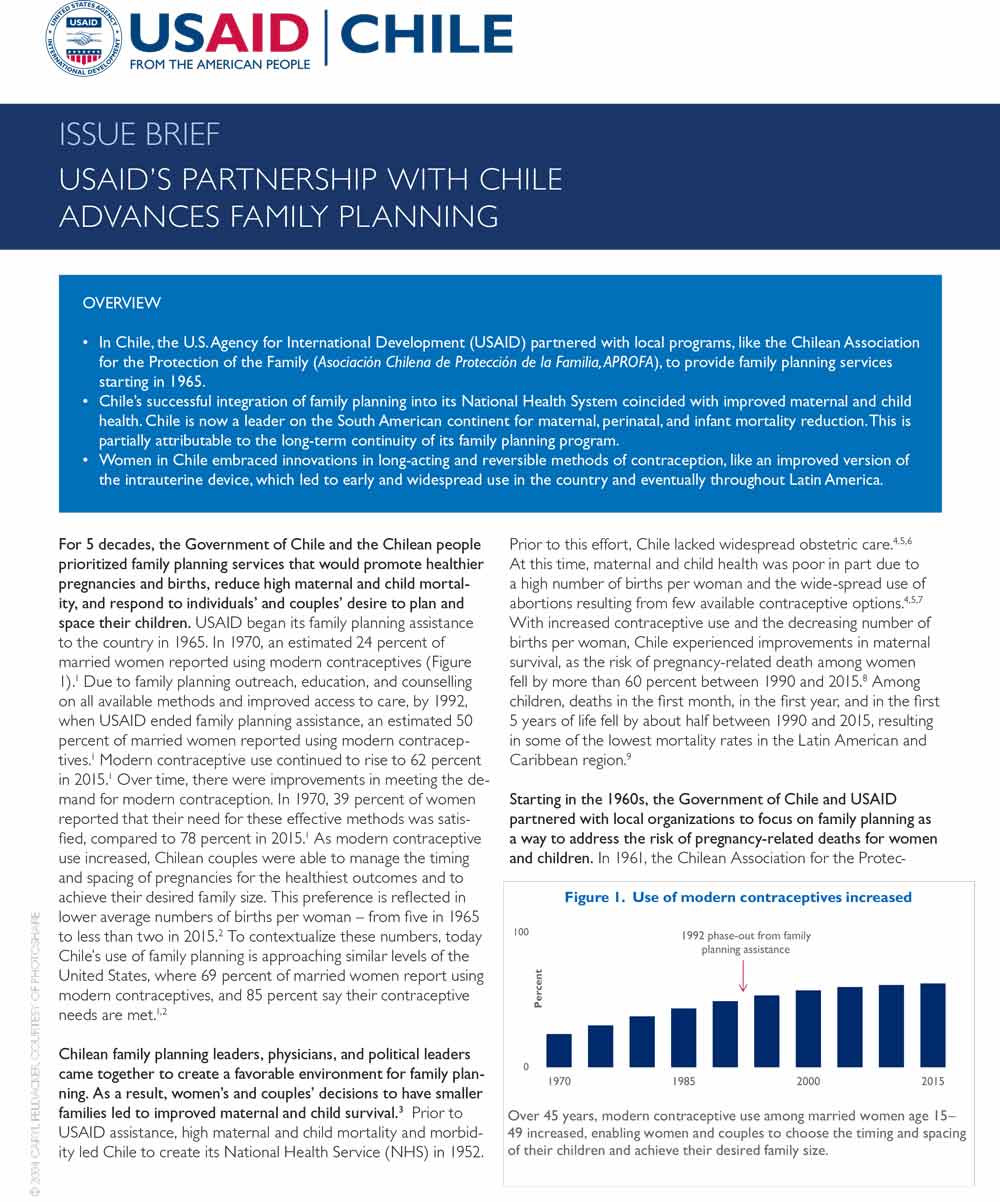Home » What We Do » Global Health » Family Planning » Resources » USAID's Partnership with Chile Advances Family Planning
- What We Do
- Agriculture and Food Security
- Democracy, Human Rights and Governance
- Economic Growth and Trade
- Education
- Ending Extreme Poverty
- Environment and Global Climate Change
- Gender Equality and Women's Empowerment
- Global Health
- Water and Sanitation
- Working in Crises and Conflict
- U.S. Global Development Lab
For decades, the Government of Chile and the Chilean people prioritized family planning services that would promote healthier pregnancies and births, reduce high maternal and child mortality, and respond to individuals’ and couples’ desires to plan and space their children.
Overview
- In Chile, the U.S. Agency for International Development (USAID) partnered with local programs, like the Chilean Association for the Protection of the Family (Asociación Chilena de Protección de la Familia [APROFA]), to provide family planning services starting in 1965.
- Chile’s successful integration of family planning into its National Health System coincided with improved maternal and child health. Chile is now a leader in South American for maternal, perinatal, and infant mortality reduction. This is partially attributable to the long-term continuity of its family planning program.
- Women in Chile embraced innovations in long-acting and reversible methods of contraception, like an improved version of the intrauterine device, which led to early and widespread use in the country and eventually throughout Latin America.
- Modern contraceptive use among married women increased from 24 percent in 1970 to 50 percent by 1992, when USAID ended family planning assistance to Chile. Modern contraceptive use continued to rise to 62 percent in 2015.








Comment
Make a general inquiry or suggest an improvement.